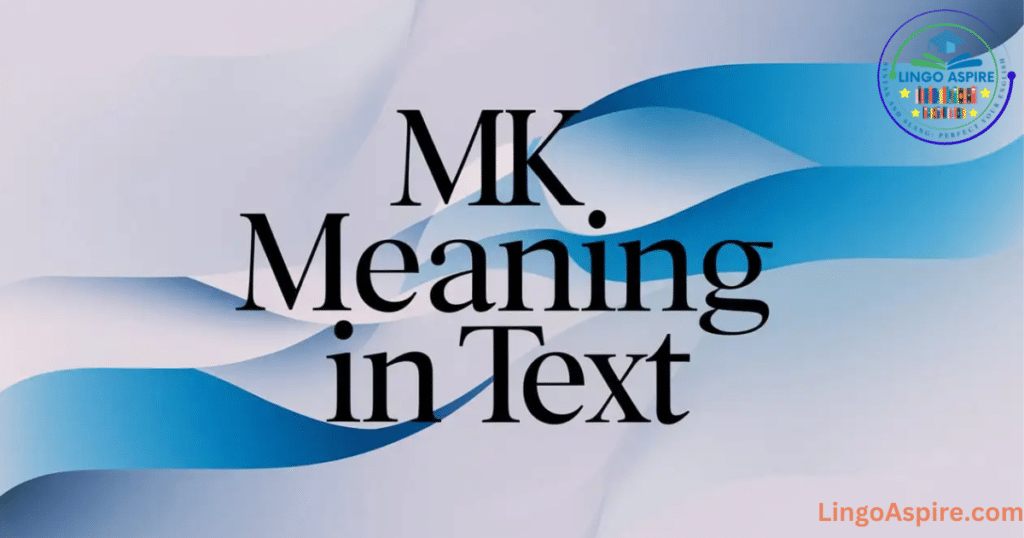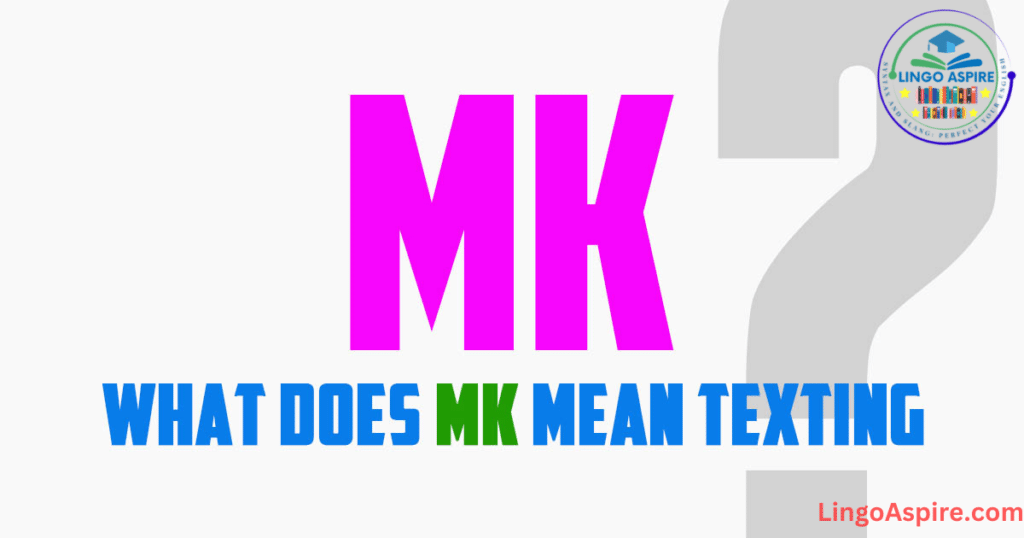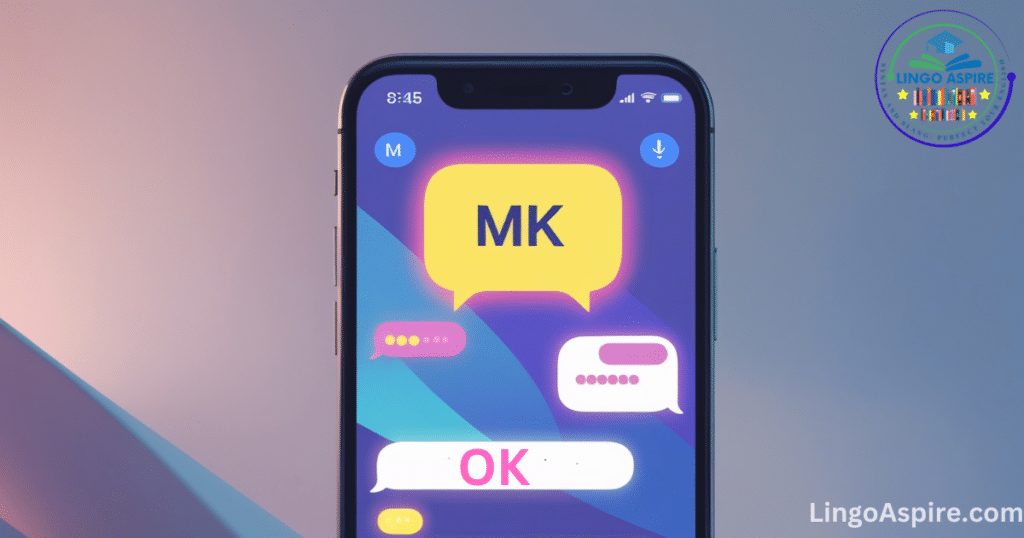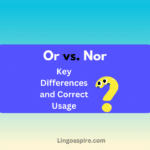Introduction
Texting has changed the way we communicate. Shortcuts and abbreviations help people send messages faster. One of these common abbreviations is MK. If you’ve seen “MK” in a text and wondered what it means, you’re not alone. This slang term is widely used, but its meaning can change depending on the conversation.
This article explains the MK abbreviation in chat, its slang meaning, and when to use it. You’ll also learn about its response meaning, different uses in social media, and how it compares to “OK.”
What Does MK Mean in Texting?

In texting, MK is a short form of “M’kay,” which is a casual way of saying “OK.” People use MK in online messaging when they want to acknowledge something without adding much emotion MK Meaning in Texting. It is common in casual conversations but can sometimes seem indifferent.
For example, if someone texts you, “I’ll meet you at 5 PM,” and you reply with MK, it means you agree. However, depending on the tone, MK response meaning can sometimes feel passive-aggressive. If someone expects enthusiasm and you just reply with MK, they might think you’re annoyed.
| Term | Meaning | Usage Example | Tone/Implication |
|---|---|---|---|
| MK | Short for “Mmm-kay” (a casual form of “Okay”) | “I’ll be there at 6.” → “MK.” | Neutral, indifferent, sometimes passive |
| OK | A direct acknowledgment of agreement or confirmation | “Can you pick up milk?” → “OK.” | Affirmative, straightforward |
| K | An even shorter form of “Okay,” often seen as dismissive | “I’ll text you later.” → “K.” | Abrupt, sometimes passive-aggressive |
| MK vs. OK | MK is more neutral or passive, while OK is clear and affirmative | “Let’s go to the movies.” → “MK.” vs. “OK.” | MK can imply indifference, OK is direct agreement |
| MK in Social Media | Used in casual messaging, sometimes to brush off a conversation | “Did you see my message?” → “MK.” | Can mean acknowledgment with little interest |
The Origin and Evolution of MK
The abbreviation MK has been used in digital communication for years, evolving alongside texting culture. Initially, MK was a simple shorthand for “Mmm-kay,” a casual way of saying “okay” with a slightly indifferent or passive tone. This usage became popular in the early days of online messaging and instant chat platforms.
As social media and texting evolved, MK took on more nuanced meanings. While it still generally means “okay”, it can sometimes indicate mild annoyance, reluctance, or even sarcasm, depending on the context. For example, in casual conversations, MK can be used to acknowledge a statement without adding enthusiasm, much like a neutral response.
Over time, the popularity of MK grew as texting shortcuts became essential in digital communication. The influence of internet culture, memes, and online forums helped solidify MK as a widely recognized slang term. Today, MK remains a quick and efficient way to acknowledge a message while maintaining a laid-back tone.
How and When to Use MK in Texts
People use MK texting examples in different ways. It usually means agreement but can carry different emotions. Here are some examples of how to use MK in social media and texts:
| Situation | Example | Meaning |
|---|---|---|
| Casual Agreement | “See you later.” → “MK” | Simple acknowledgment |
| Indifference | “Want to watch this movie?” → “MK” | Unenthusiastic reply |
| Passive-Aggressive Tone | “Don’t forget to call me.” → “MK” | Could seem dismissive |
You can use MK vs OK meaning in different ways. MK feels more casual and less serious. OK is more neutral and widely used in professional settings.
MK in Social Media and Online Messaging
MK in social media and online messaging has become a common term used across different platforms like Twitter, Instagram, Snapchat, and WhatsApp. The MK abbreviation in chat is often used to acknowledge a message without committing to a lengthy response. Users might say “MK” in response to an invite, a question, or even an update. The tone can vary depending on context, but it usually implies neutrality, agreement, or indifference.
On social media, MK texting examples show that people use it in direct messages (DMs) and comments. For instance, if someone messages “Let’s meet at 5 PM,” a simple “MK” can signal that the message was received. However, in some cases, the short and abrupt nature of “MK” can make it seem dismissive, especially if the conversation is serious. Understanding MK in casual conversation on social media helps users avoid miscommunication.
MK Urban Dictionary Definition and Popular Usage
According to Urban Dictionary, MK is often used as a casual acknowledgment, similar to “okay” but with a slightly indifferent or passive tone. Many users employ it in digital conversations when they do not feel like giving a more engaged response. It can also be used to signal that the conversation does not need further discussion.
For example, a message like “I’ll call you later” followed by MK means the sender acknowledges the statement without necessarily expressing excitement or urgency. The meaning of MK can vary based on context and tone, making it important to interpret it correctly in different texting situations.
Common Misinterpretations and Variations
MK slang meaning depends on the context. Sometimes, people misunderstand it, leading to confusion. Since MK response meaning can sound indifferent, it might come across as cold. For example, if someone shares exciting news and gets “MK” as a reply, they might think the other person doesn’t care.
There are also variations of MK that people use differently. Some examples include:
- M’kay – The full form, often used humorously.
- Mkay – A softer variation with a friendly tone.
- K – A shorter version of “OK,” sometimes seen as dismissive.
- Kay – Another informal way to say “OK.”
Each version has a slightly different meaning, so understanding the tone is important in MK in casual conversation.
Alternative Meanings of MK in Other Contexts
While MK abbreviation in chat means “M’kay,” it has different meanings in other areas. Here are some alternative definitions of MK:
| Context | Meaning |
|---|---|
| Business | MK can stand for Mary Kay, a cosmetics brand. |
| Gaming | In video games, MK often refers to Mortal Kombat. |
| Military | MK is used in military terms to label equipment like MK-5 (Mark 5). |
| Geography | MK is sometimes short for Milton Keynes, a city in England. |
Similar Slang and Shortcuts in Digital Communication
In digital communication, shortcuts and slang are essential for quick and efficient messaging. Along with MK, people use many other abbreviations to express thoughts concisely. Some common examples include LOL (Laugh Out Loud), BRB (Be Right Back), IDK (I Don’t Know), and SMH (Shaking My Head). These shortcuts make texting faster while still conveying meaning effectively.
Another similar term to MK is K, which is often seen as even more dismissive than MK. While MK carries a neutral tone, simply replying with K can come across as abrupt or even passive-aggressive. Similarly, abbreviations like TTYL (Talk to You Later) or GTG (Got to 0zGo) signal the end of a conversation, much like how MK is sometimes used MK Meaning in Texting.
These digital shortcuts evolve over time as new slang terms emerge. Understanding them helps in interpreting messages correctly and avoiding miscommunication in casual online conversations.
- K – A very short way of saying “OK.”
- KK – A friendly way to confirm something.
- Aight – Short for “Alright,” meaning agreement.
- Bet – Slang meaning “Okay” or “I agree.”
- Yep/Yup – Casual ways to say “Yes.”
- Nah/Nope – Informal ways to say “No.”
Knowing these MK and similar slang terms helps in understanding modern texting styles.
MK vs OK Meaning: Understanding the Difference

The abbreviation MK and the word OK are often confused in texting. While OK is widely recognized as an affirmative response, MK has a more passive or neutral tone. When someone replies with OK, it generally means they agree or acknowledge something positively MK Meaning in Texting. However, MK can sometimes imply indifference, mild annoyance, or simply a way to end a conversation quickly.
For example, if a friend asks, “Want to meet at 6 PM?” and you respond with OK, it indicates clear agreement. But if you respond with MK, it might suggest that you are going along with the plan but without much enthusiasm. Context and tone matter when interpreting MK versus OK, and using the right one can help avoid misunderstandings in casual conversations.
Real-World Texting Examples
Here are some MK texting examples in different situations:
Example 1 – Casual Conversation
Person A: “Hey, I’ll be there in 10 minutes.”
Person B: “MK. See you soon!”
Example 2 – Passive-Aggressive Tone
Person A: “Why didn’t you call me last night?”
Person B: “I was busy.”
Example 3 – Professional Setting (Not Recommended)
Manager: “Make sure to send the report by 5 PM.”
Employee: “MK.”
(This might seem unprofessional, so “OK” is a better choice.)
These examples show how MK in online messaging works in different situations.
How to Reply to MK in a Conversation
When someone texts you MK, your reply depends on the situation. Here are some possible responses:
| If MK Means… | Your Reply |
|---|---|
| Agreement | “Great! See you then.” |
| Indifference | “Is everything okay? You don’t seem interested.” |
| Passive-Aggressiveness | “If something’s wrong, let me know.” |
Final Thoughts
Using MK abbreviation in chat depends on the situation. It is fine in casual conversations, but in professional or serious settings, “OK” is a better choice. While MK in casual conversation is common, it can sometimes feel dismissive or indifferent. If you’re unsure, use “OK” to avoid misunderstandings.
To sum up, MK slang meaning is simple—it usually means “OK” in texting. However, tone and context matter. Knowing the different meanings of MK helps in responding correctly. So next time you see MK in online messaging, you’ll know exactly what it means!







